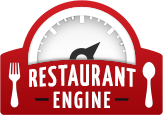10 Unexpected Costs New Restaurants Face

All restaurants are at risk for unexpected costs.
Any day is a good day to start a new restaurant. In fact, studies show the risk of failure (and the potential for success) is the same in a good economy or a bad one. Yet, restaurant owners often face unexpected costs that can affect the fate of their new restaurant.
Budget for unplanned complications so you can absorb them with ease. Good planning and adequate capital in year one help you begin year two with a head start on your competition. Capital is key. Don’t be under capitalized. If you think your restaurant needs $50,000 to open, it really needs $100,000.
Just what are the unexpected costs you might face? You’ll learn about ten of them in this blog post.
Inspect Reports and Revise the Contract
Before purchasing a restaurant, check with your county’s Public Records Department and request previous inspection reports going at least two years back. These are a matter of public record. Look over the report and make note of the following:
- Multiple changes of ownership. This may indicate the location is a poor choice.
- Compliance schedules. The previous owner may have decided to sell the restaurant instead of paying for costly repairs.
- Frequent citations for temperature or insect infestation violations. The restaurant may have trouble with refrigeration and/or bugs.
Don’t sign a contract without consulting an attorney well-versed in restaurant ownership. Consider inserting a clause in your contract that requires the restaurant to pass all inspections. Insist that the previous owners provide remedies and upgrades if the costs exceed a certain dollar amount.
Do a Lien Search
Don’t get caught paying for the previous restaurant owner’s problems.
As a buyer, you are responsible to search for liens on the restaurant. Did the previous owner neglect to pay for their new roof? Since property liens are attached to a property’s title, not to the owner of that property, you are now liable.
Perhaps the previous owner had financial troubles, and the bank foreclosed on his loan. Don’t buy the restaurant as is. Before buying property (especially foreclosed property) it’s wise to have a title company search the property’s title for defects. This protects you from the unexpected cost of paying for previous liens.
Attend to Zoning Issues
Zoning and insurance can become an unexpected expense if you don’t know your way around the business arena. If you are purchasing space for a restaurant, make sure it is zoned appropriately. If you are planning on renovations, you’ll also need to check your zoning status and account for any changes/costs in parking specifications.
Avoid Remodeling Overages
Before you purchase or lease your new restaurant, have a walk-through with a general contractor. Let them know what you want to update or change. Will you make structural changes, add fixtures and equipment, remodel bathrooms and the kitchen, etc.? Know what these costs are before you sign the contract to avoid unexpected expenses later.
You’ll also want to check with your city planning department for prior approval on any remodeling to avoid any delays and other costs.
Get Insurance
You know you need property insurance, so before purchasing or leasing your space, check with your insurance company. Don’t wait until you’ve signed the contract to find out the insurance costs are exorbitant. Get a quote in writing. If your building has a history of problems or is in a high crime area, you’ll pay more. Know this beforehand.
You’ll need a comprehensive insurance package to alleviate insurance risks to yourself and your restaurant. (tweet this)
You will probably face at least one frivolous lawsuit, so make sure you are protected. The unexpected expense of paying for a lawsuit can destroy your reputation and your business. Even if your business is free of any wrongdoing, you’ll still be on the hook for expensive legal fees.
Some examples of lawsuits could include:
- Burns caused by “too hot” coffee
- Burglary in poorly lit parking lot
- Your employees’ poor judgment
- Restroom issues
Take Care of Permit Costs

Make sure you have all your permits.
The local city government oversees the safety of your business and thus your restaurant. You’ll have to purchase certain licenses and permits to operate your restaurant. These can be unexpected costs if you haven’t planned for them. Here are a few to investigate with your city or county:
- Business license
- Food handler’s license or permit
- Liquor license
- Fire certificates
- Sign permits
- Music license
- ADA compliance (Americans with Disabilities Act)
Plan Properly for Utilities
It’s month three of your first year of restaurant ownership, and your utility bills are mounting. Don’t bank on being profitable right away. Make sure you have capital set aside to pay your rent and utilities for at least one year. (tweet this) Here are some estimates of what you’ll need to set aside:
- A security deposit/loan down payment: approximately $2,000 – $12,000
- First month rent/loan: approximately $2,000 – $12,000
- Monthly utilities including gas, electric, phone, water, trash and Internet: approximately $2,500
You’ll also want to investigate the utilities situation before you sign your contract. It is quite common for previous restaurant owners to leave without paying their utility bills. If this happens, you are obligated to pay past due bills before electric, gas or water service is turned on. Contact the utility companies to check on any issues before moving forward.
Add Credit Card Processing Fees
Your restaurant customer pays his $100 tab with his Visa card. The entire bill amount gets deposited to your account, right? Unfortunately, no, it doesn’t. Another unexpected cost of doing business is credit card processing fees.
Accepting credit cards is good for your business. Your diners enjoy the convenience, and oftentimes customers paying with plastic spend more than customers paying with cash. But, you will pay a fee for each transaction. Restaurants usually pay between 1.8% and 2.5% of their credit card sales to the bank or credit card processor. Keep in mind that some banks also require a security deposit of several hundred dollars to set up your merchant account.
Hire Professional Labor
Whether you are purchasing a restaurant or leasing space, you’ll probably need to fix a toilet, install a light fixture or attend to the ice machine. Is it really better for you to do it or a professional?
Quick fixes can cost more in the long run. So, rather than take any chances, it’s best to hire a professional to take care of your labor tasks. Set aside some money so the unexpected doesn’t leave you scrambling for cash.
Work with a Reputable Marketing Firm
Stuart H. Britt, US advertising consultant, said, “For a business not to advertise is like winking at a girl in the dark. You know what you are doing but no one else does.” Marketing is the driving force behind your business. You’ll need to get the word out to drive traffic to your restaurant.
Don’t fall into the bottomless pit of marketing dollars. Be careful of marketing “gurus” who prey on unsuspecting new business owners. You can be hit with large marketing expenses if you don’t spell out your needs and your bottom-line budget with your marketing firm. There are a few marketing items you can’t do without:
- A responsive, mobile-friendly website with a menu is a must.
- A social media presence is also of great importance. Start with Facebook, Twitter and Google+. From there, you can try LinkedIn, Pinterest, Instagram and others.
You’ll manage your unexpected problems with ease as long as you’re sufficiently capitalized. Carefully evaluate your budget and ensure you factor in some of these hidden, unexpected expenses while planning for the obvious ones such as food inventory and payroll.
Looking for a terrific website that looks great on a phone, tablet and computer with an option for online ordering? We are glad to help! Contact us today to request your free website consultation.
Images: Peter Chen & Flickr


Leave a Reply